YK Pao High School’s curriculum is based on the China National Curriculum, with a full range of elective courses in IGCSE and IB. One of the core missions of the school is to pass on traditions of Chinese culture, allowing students to build a greater understanding of the country. Through this, Chinese students can develop a stronger appreciation for their home country, whilst international students can learn more about China – with both sides enjoying the opportunity for cross-cultural exchange.

More Stories about the Ming Dynasty
Following the high school’s first compilation of history essays “More Stories about the Ming Dynasty”, published the 2019-20 academic year, the second compilation “Distinguished Figures” is now in progress. The essays, written by students over the past academic year, were made possible thanks to the support of the High School Morality and Law, Politics, and History teachers.
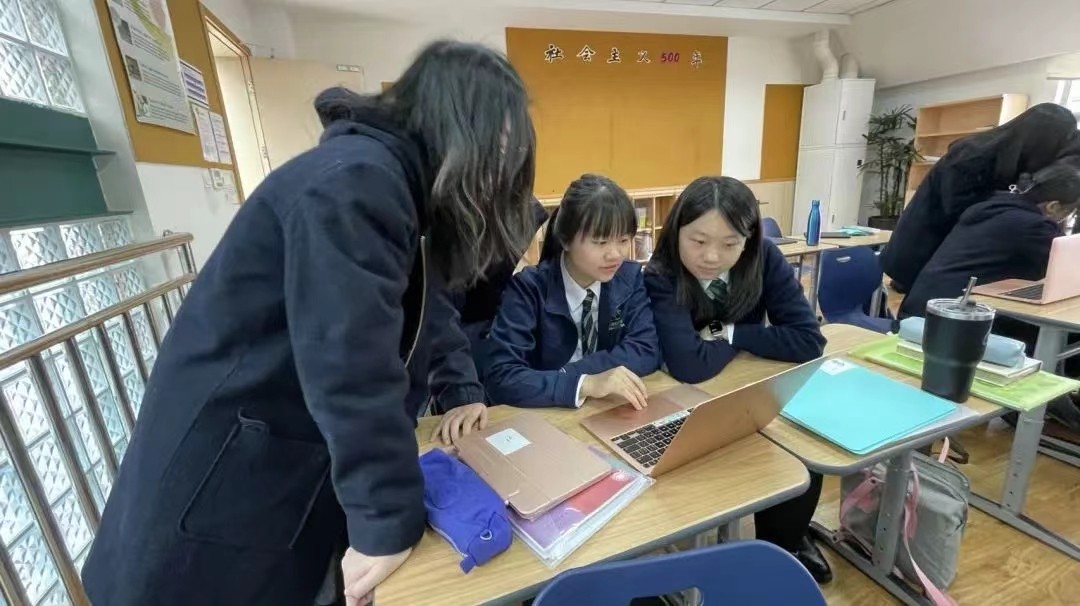
In their study of Chinese history, Year 11 students took part in "Understanding Chinese Historical Figures”. In the activity, the students sought to explore the stories of these individuals at different stages of history and bring them to life, as well as gain a better understanding of China’s traditional culture. In small groups, the students submitted selected topics about more than 60 Chinese historical figures from ancient times to the present day. As part of the class, the teacher provided guidance on different ways to approach writing and how to research for essays. Students then researched in groups and wrote short essays about the various historical figures of their choice.
Evaluating historical figures is the most important part of students' historical
research. As such evaluation is often multifaceted and complex, students should
place historical figures in the historical context of their lives to analyse and
evaluate them as individuals as well as the related historical events.
—— Benjamin Zhao
High School History Teacher
For example, in their study of the Qin Dynasty, the students identified and analysed a selection of early Chinese texts, notably written on strips of bamboo, known as the Shuihudi Qin bamboo texts. In addition, the students delved into Sima Qian’s "Records of the Grand Historian”, which describes the monumental history of ancient China. Based on historical materials from different sources and viewpoints, the students concluded that the Qin Dynasty’s legal system was both strict and but also humanistic. Through this analysis, they gained a more comprehensive understanding of the first Qin emperor, who was also the first emperor of unified China.

The ultimate goal of studying history is not only the mastery of knowledge, but to form a core literacy of and a more nuanced view of the discipline. This semester, all Year 11s took world history, while some students also take history as part of their course selection. As the content explored common themes, the Chinese history teachers invited IB History students to present what they have learned, allowing both the comparison of Chinese and world history, and exploration of Chinese history within a wider global context.
I found the study of historical figures highly beneficial, as the
research stimulated my interest in inquiry and helped me learn
how to better use historical information to analyse problems.
——Y11 Kevin
Alongside the study of historical figures, students also learned about contemporary Chinese role models. In Year 10’s political studies class, Ms. Echo Cheng guided everyone to learn about Chinese scientists who have made contributions to Chinese society. In addition, Ms. Cheng helped the students understand the pioneers of reform and opening-up policy and consider the policy impact to the lives of contemporary high school students. After class, the students used creative writing to bring to life the stories behind these great Chinese role models by writing a letter highlighting their deeds and their contribution to students’ lives.
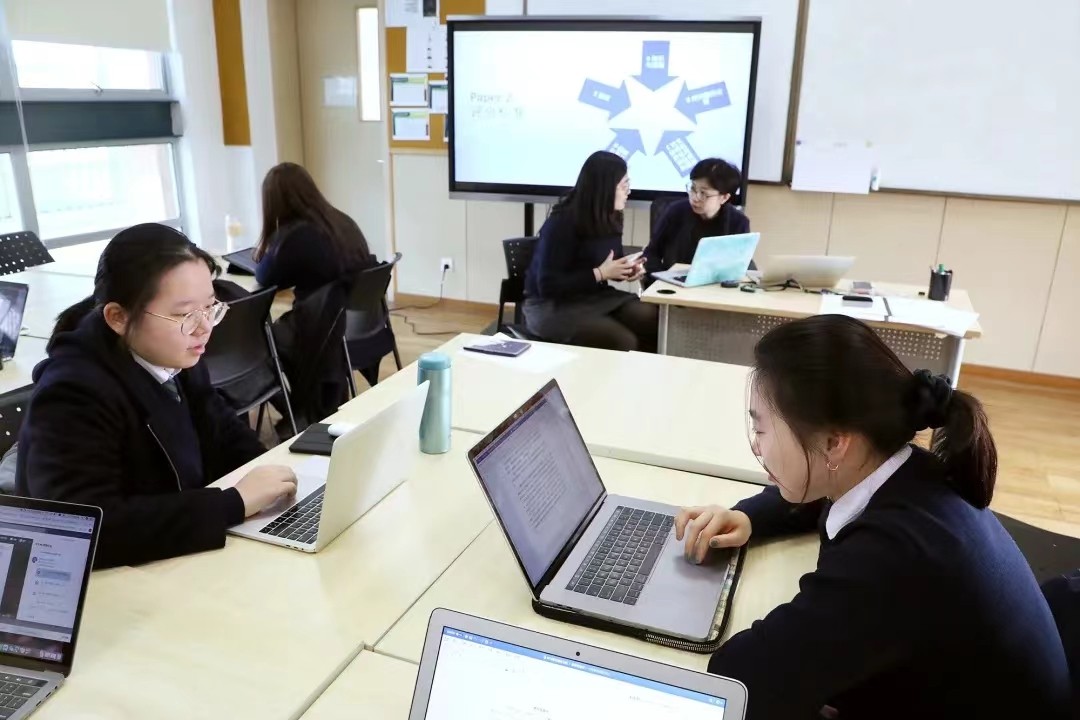
In the task, the students assumed the roles of scientists, railway workers, athletes, teachers, doctors and soldiers of the People's Liberation Army. Ningning Xu (Y10) wrote in her character story: "The Fenghuoshan Tunnel part of the Qinghai-Tibet railway is 4,900 meters above sea level. It is located in a permafrost layer, which presents special challenges for construction. However, scientists overcame these problems, leading to what can be called a true miracle in the history of the world's railways."

At first, Ningning understood such achievements as only reachable by extraordinary people. After learning about the achievements of the Qinghai-Tibet railway workers in greater detail, she found that ordinary people also contain heroic virtues. “Ordinariness makes for greatness!” she said.
In the Morality and Law class, teachers Liz Huang, Song Dongfang, Echo Cheng and Benjamin Zhao taught students about exemplary historical figures from different eras and urged them to further their understanding through independent research.
Amy wrote about Professor Yuan Longping, who pioneered the development of the world's first hybrid rice varieties, an innovation that has greatly improved food security across the world. "Professor Yuan Longping experienced many difficulties in the research process. Instead of giving up, he was resilient and persistent. We should learn from Professor Yuan Longping's spirit of perseverance.” Amy says.
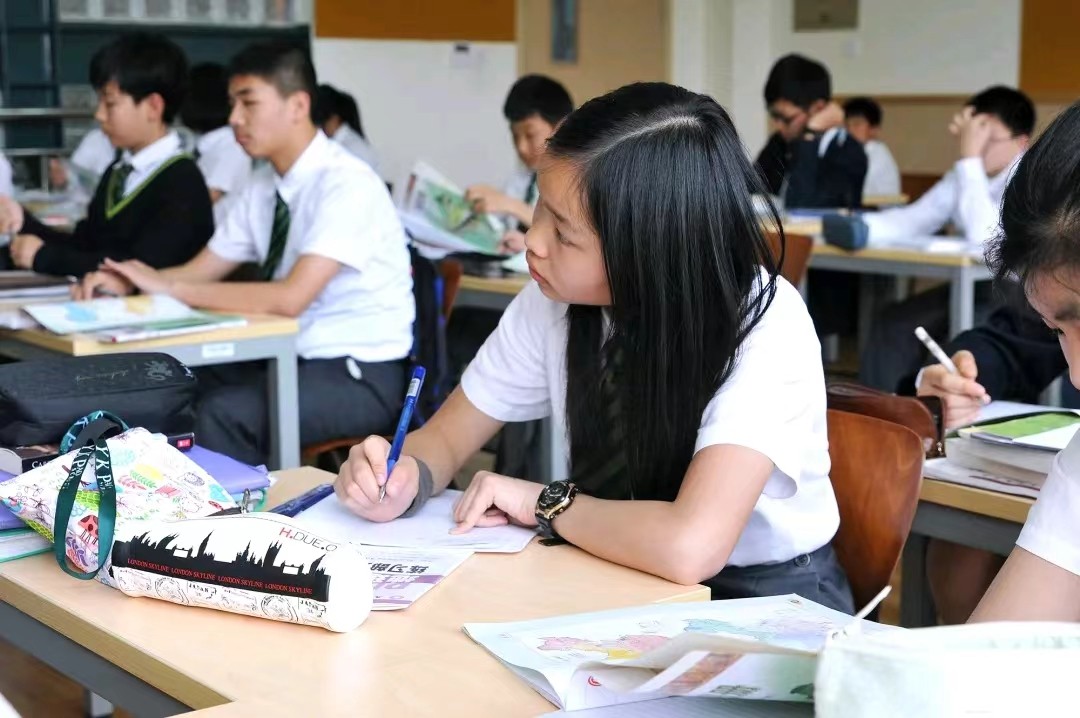
Grace, who studied Mr. YK Pao, wrote: “The most remarkable aspect of Mr. YK Pao’s character is his dedication and patriotism. We should learn from his spirit of “remembering your roots” and even when we are overseas, actively work to repay the motherland and society."
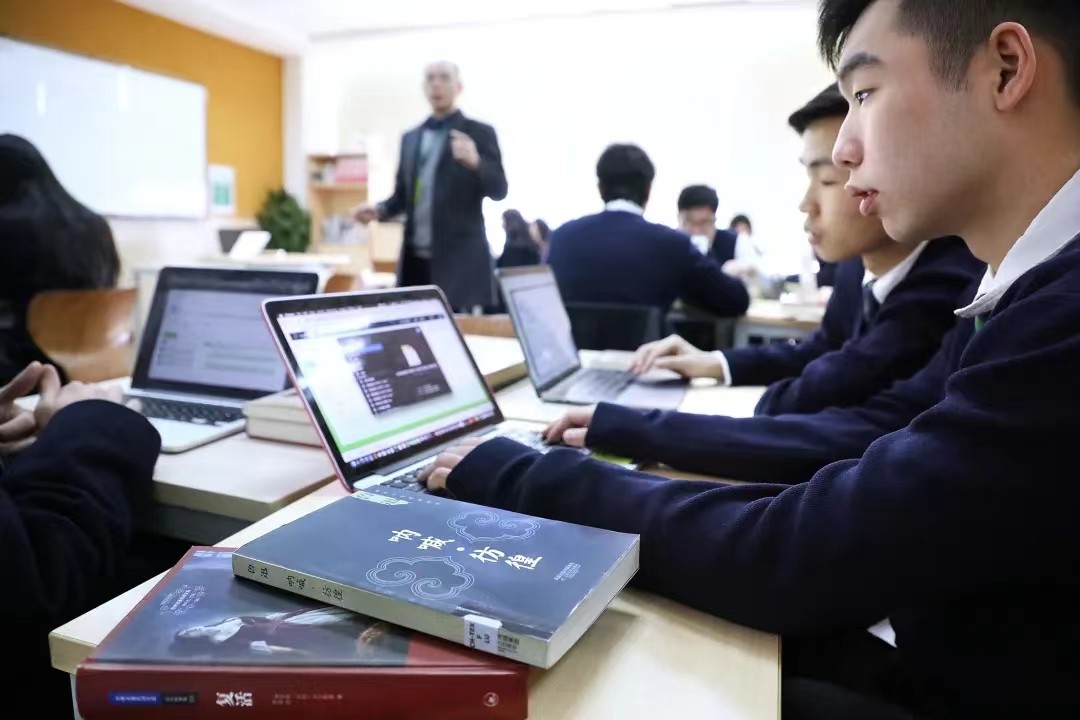
Beyond the textbooks, the school also draws on external resources, such as guest speakers, to enhance students’ learning of current political news and global affairs. Professors from the Chinese Academy of Sciences (CASS), Shanghai Jiao Tong University, and the Association of Women Scientists have been invited to high school campus. Through the words of these leading experts, students gain higher levels of insight into the latest science and technology trends and a more rounded global perspective.
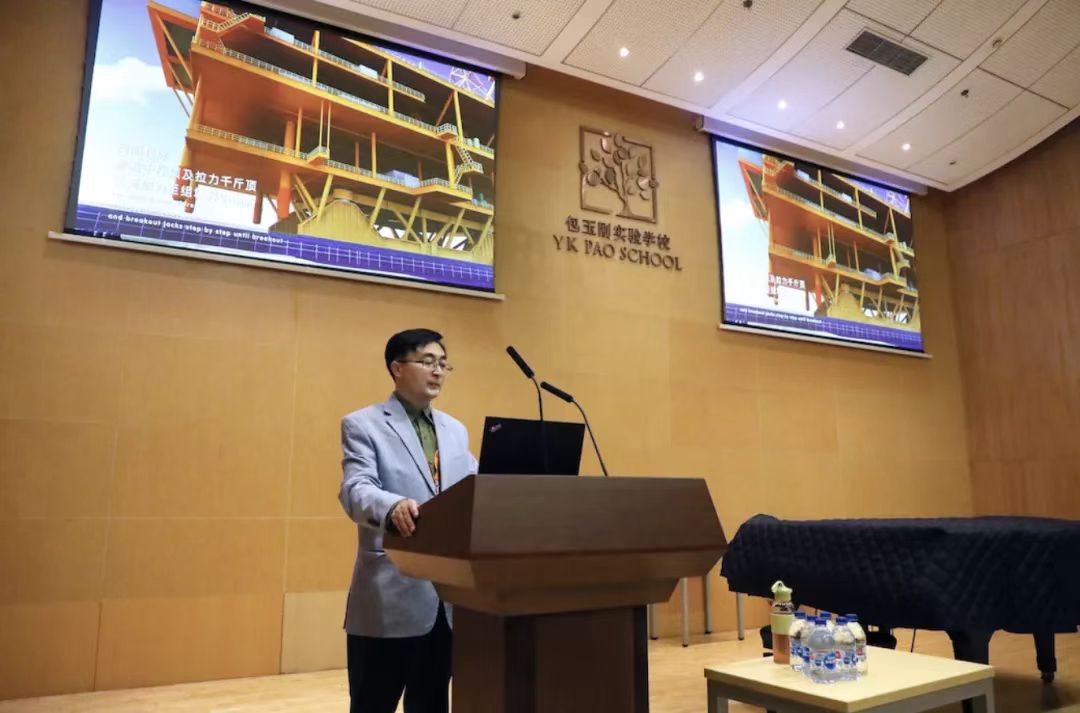
Wang Lei, professor and doctoral supervisor at the School of Marine and Architectural Engineering
at Shanghai Jiaotong University, spoke about large-scale offshore platforms to Year 10 students.
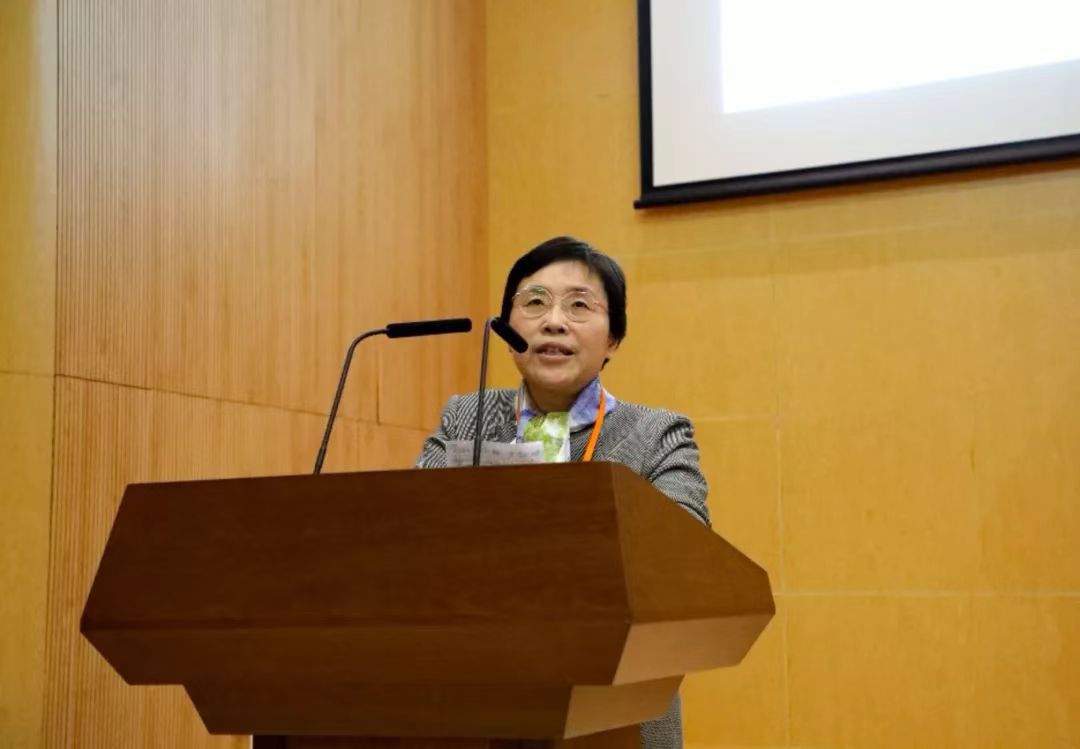
The “Scientists on Campus” was guided by Madam Han Hua, former deputy chairman of the
Shanghai Academy of Science and Technology, a Pao School science advisor,
and vice chairman of the Shanghai Women’s Scientists Association.
In the process of implementing the “Chinese National Curriculum +” in YK Pao
High School, the teachers of the Chinese Four Courses carefully design teaching
activities such as “learning the art of evaluating historical greatness”. The activity
allowed students to explore the moving stories of outstanding historical figures,
whilst also realising the goal of fostering virtue through education. At the High
School, the teachers connect the high and middle school curriculum, incorporate
elements of the advanced international curriculum, while at the same time adopt
innovative teaching approaches such as project-based learning and interdisciplinary
learning. Their work combines classroom teaching with co-curricular practice and
improves students' core literacy to accomplish Pao School's mission of implementing
whole-person education, passing on traditions of Chinese culture, and fostering an
international perspective as well as the core values of compassion, integrity and balance.
—— David Xiong,
Director of High School Chinese Academics
Special thanks to teachers Liz Huang, Dongfang Song, Echo Cheng, Benjamin Zhao and David Xiong